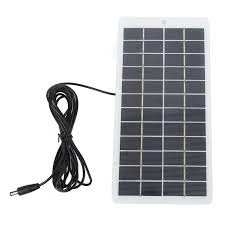Harnessing Solar Power for Small Appliances in Everyday Use and Sustainable Living
Solar Panels for Small Appliances Harnessing the Sun for Everyday Energy Needs
In an age where sustainability and energy efficiency are becoming paramount, solar panels have emerged as a viable solution for powering small appliances. From smartphones to small kitchen devices, the integration of solar energy into daily life presents a multitude of benefits, including cost savings, environmental friendliness, and energy independence. This article aims to explore how solar panels can be utilized for small appliances, the advantages they offer, and considerations for consumers looking to adopt this renewable energy source.
The Basics of Solar Energy
Before diving into the use of solar panels for small appliances, it’s vital to understand how solar energy works. Solar panels, or photovoltaic (PV) panels, convert sunlight into electricity. When sunlight hits the solar cells within the panels, electrons are knocked loose and flow through the material to create an electrical current. This direct current (DC) can then be converted into alternating current (AC) for use in household appliances.
Applications for Small Appliances
Solar panels can be effectively used to power a variety of small appliances, including
1. Mobile Devices Many portable solar chargers exist that can charge smartphones, tablets, and other small electronics. These devices are compact and convenient, allowing users to harness solar energy while on the go.
2. Small Kitchen Appliances Solar panels can power various kitchen gadgets, such as blenders, toasters, and coffee makers. With the right setup, homeowners can operate these appliances off-grid, especially in areas without reliable electricity.
3. Outdoor Equipment Solar panels are ideal for powering outdoor appliances like garden lights, irrigation systems, or outdoor speakers. These systems enhance outdoor living spaces without relying on traditional power sources.
4. Recreational Vehicles (RVs) For those who love the outdoors, solar panels can power small appliances in RVs or campers, making it easier to enjoy the comforts of home while exploring nature.
Advantages of Using Solar Panels
1. Cost Savings By using solar panels to power small appliances, consumers can significantly reduce their electricity bills. While the initial investment in solar technology can be high, the long-term savings on energy costs can outweigh these upfront expenses.
solar panels for small appliances

2. Environmental Impact Solar energy is a clean and renewable resource. By utilizing solar panels, consumers can decrease their reliance on fossil fuels, thereby reducing their carbon footprint and contributing to a healthier planet.
3. Energy Independence Solar panels allow homeowners and users to generate their own electricity, which is particularly beneficial in remote areas where grid access may be limited or unreliable. This self-sufficiency can provide peace of mind during power outages or natural disasters.
4. Low Maintenance Solar panels generally require minimal maintenance. After installation, the main responsibility is to keep the panels clean from debris and dust to ensure optimal efficiency.
Considerations for Consumers
While the advantages of solar panels for small appliances are attractive, there are some considerations to keep in mind
1. Initial Costs The cost of purchasing and installing solar panels can be considerable. However, many manufacturers offer financing options, tax credits, and incentives that can alleviate the financial burden.
2. Energy Requirements Consumers should assess the energy requirements of their appliances to determine the size and capacity of the solar panel system needed. Not all devices can be powered efficiently by small solar setups.
3. Location and Sunlight Exposure The effectiveness of solar panels depends on the amount of sunlight they receive. Homeowners living in areas with frequent cloud cover may find solar panels less efficient than those in sunnier climates.
4. System Integration For those wishing to integrate solar panels into their existing electrical systems, hiring a professional installer can ensure that the process is done safely and effectively.
Conclusion
Solar panels for small appliances represent an innovative and sustainable alternative to traditional energy sources. By harnessing the power of the sun, consumers can reduce their energy costs, lessen their environmental impact, and enjoy the convenience of electricity in off-grid locations. As technology continues to improve and the costs of solar setups decline, the adoption of solar energy for powering small appliances is likely to grow, leading to a greener and more sustainable future. Embracing solar energy is not just a trend, but a crucial step towards a more sustainable lifestyle.
-
Unlocking Energy Freedom with the Off Grid Solar InverterNewsJun.06,2025
-
Unlock More Solar Power with a High-Efficiency Bifacial Solar PanelNewsJun.06,2025
-
Power Your Future with High-Efficiency Monocrystalline Solar PanelsNewsJun.06,2025
-
Next-Gen Solar Power Starts with Micro Solar InvertersNewsJun.06,2025
-
Harnessing Peak Efficiency with the On Grid Solar InverterNewsJun.06,2025
-
Discover Unmatched Efficiency with the Latest String Solar InverterNewsJun.06,2025







